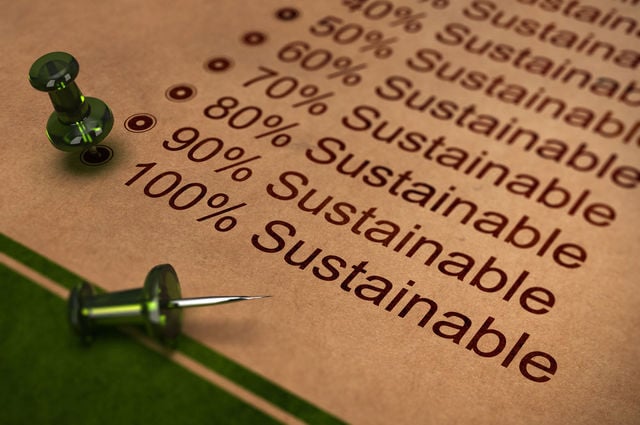How can sustainability be communicated beyond clichés and greenwashing?
31 experts shared their view
Both clichés and greenwashing are amongst the biggest traps to fall into when communicating sustainability. A "let's save the world" claim and tacky towel policy stickers are superficial and unappealing and could be a turn-off to the small group of environmentally and socially-conscious consumers. Green certification and lengthy, detailed corporate sustainability reports may (potentially) be of interest to a small niche group of highly activist consumers, who may not buy into that type of corporate hospitality in any case. However, there is a growing number of informed travelers: Those in search of genuine wellbeing and meaningful experiences at no (or as little as possible) cost to the planet. What works and what doesn't work in communicating sustainability? Any recommendations in regard to communication entering this critical decade?
Consumers – both B2C and B2B – are becoming increasingly conscious of sustainability in their travel decision-making. According to research, 70% of global travellers say they would be more likely to book accommodation knowing it was eco-friendly – whether they were looking for a sustainable stay or not (Booking.com). The same research shows that the intention to stay in at least one eco-friendly accommodation has increased year-on-year over the past four years. This is also being seen in the corporate sector. For example, 53% of North American companies have corporate sustainability programs that affect their decision to contract with a travel supplier (GBTA).
We can see there is an increasing importance for the hospitality industry to communicate their sustainability practices. So how can sustainability be better, and more consistently, communicated?
There is perhaps a nervousness from some areas of the market that talks about sustainability would suggest a compromise on guest experience. One reason for this is that the traditional sustainability communications have tended to put the onus on the guest – e.g. re-use your towels, refrain from having your room cleaned – and a cynical client could perceive this as the hotel trying to save money rather than trying to save the world.
Some of the best sustainability solutions are the ones that are unnoticeable to the guests. We see many examples from our members, and the wider industry, such as grey-water re-use, switching to renewable electricity or employing people from disadvantaged backgrounds, which guests may not be aware of. We, therefore, we need to talk about it so consumers know that it's more than just towels – whether that's on your website, social media channels, or looking for opportunities to communicate to guests during their stay. One way that enhances the guest experience is through story-telling – sharing the information through a personal story, or unique angle will help guests to connect with the story emotionally and provide an opportunity to embed your brand's wider sustainability values in the message.
There is also a lack of a clear definition of what is meant by 'sustainability'. Covering everything from carbon emissions, plastic use, water consumption, and food waste, to providing decent work and supporting the local community, it can be difficult for consumers to compare genuine intent to 'greenwashed' statements.
More consistent definitions and benchmarking across the industry are therefore required. For example, we offer free hotel carbon measurement and hotel water measurement tools to enable every hotel to monitor and report their usage. Greater uptake by the industry of shared resources will ensure a fair system for industry benchmarking as well as helping consumers to determine meaningful actions.
Many of the larger brands now publish annual sustainability or corporate social responsibility (CSR) reports. If this became more common practice (even a short annual summary for smaller hospitality businesses), customers and corporate clients would know to look for this information when assessing their travel options.
In other industries, such as food and cosmetics, consumers are now very accustomed to looking for marques of sustainability such as organic, local or ethical sourcing. So the industry could also make more prominent use of their certifications and membership of industry bodies aimed at improving sustainability (such as International Tourism Partnership) as a way of communicating their sustainability.
With increased sharing of good practice, clearer benchmarking and access to information, we can demonstrate that sustainability provides a genuine value-add and will be a key differentiating factor in every booking selection.


